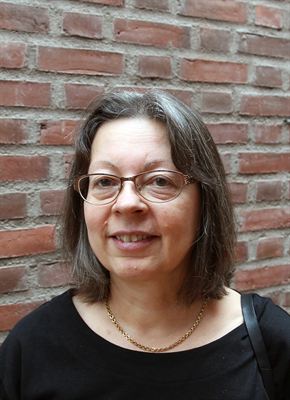Research Sheds Light on Montessori’s Collaboration with Mussolini

Maria Montessori is primarily known for her revolutionary model of education and learning. A new book reveals that she was also an influential cultural critic during the interwar years. It furthermore highlights Montessori’s decade-long, but largely ignored, cooperation with Benito Mussolini.
The book, written in Swedish by Christine Quarfood, professor of history of ideas at the University of Gothenburg, is titled Montessoris pedagogiska imperium: kulturkritik och politik i mellankrigstidens Montessorirörelse.
The book brings the reader back to the early 1900s and Italian doctor Maria Montessori’s new and revolutionary approach to children’s learning. Montessori criticised the traditional, teacher-led classroom model and instead wanted children to learn how to operate autonomously in the school environment.
”Montessori claimed that adults had always hindered and oppressed the children, and that her movement would liberate them”, says Quarfood.
”She was considered a representative of a new, anti-authoritarian spirit, but at the same time she managed to combine freedom with order and discipline in the classroom. The Montessori children disciplined themselves; they were quiet, hard-working and motivated.”
The Montessori movement is still very successful today, with schools all over the world. However, the world-improvement programme once promoted by this movement has largely been forgotten.
”The aim of the Montessori movement was the reconstruction of society. The idea was not only to offer good schools, but for schools to change society. By creating a new and improved type of children, it would be possible to create a better and more peaceful world. This enthusiastic credo brought light and hope at a rather dark point in history.”
Maria Montessori’s cultural critique combined contemporary ideas related to freedom, pacifism, psychodynamics and evolutionary biology. With her book, Christine Quarfood wants to provide a more comprehensive picture of Montessori as a thinker.
”Female intellectuals are easily reduced to ‘someone who only dealt with kids, motherhood and family issues’, but then you don’t get the whole picture.”
Despite her international success, Montessori had problems gaining acceptance in Italy, as her schools were deemed too expensive. But when she teamed up with Mussolini she immediately found it easier to reach out with her ideas.
”The fascist regime was of course interested in Montessori’s famous model of education, especially as a tool to instil discipline.”
In retrospect, it may seem strange that Montessori, a pacifist, collaborated with a fascist regime.
”She obviously misinterpreted what Mussolini stood for. In the first ten years of fascism, Italy, although belligerent in its ideology, was not yet a war-faring nation. The regime’s major school reform and social investments seem to have impressed Montessori”, says Quarfood.
”But she, too, had a dictatorial side. She controlled her movement with a firm hold. Paradoxically, she wanted to give children freedom at the same time as her followers were largely denied any autonomy, as they were forced to follow her instructions strictly. She tried to develop her movement almost like an empire.”
The cooperation with Mussolini lasted about 10 years, until Italy became belligerent.
”At that point, an outspoken pacifist like Montessori couldn’t be used as a figurehead any longer, as the great Italian educator.”
The Montessori model of education was banned in Nazi Germany in 1936, and Italy soon followed. Maria Montessori continued to actively promote peace.
”The Montessori movement has tried to sweep the problematic alliance with Mussolini under the carpet, but this collaboration has to be dealt with at some point. My aim has been to clarify the circumstances that made this collaboration possible, without demonising or embellishing it”, says Quarfood.
Montessoris pedagogiska imperium is based on a vast press-historical material, including journals and publications from the Montessori movement, as well as source materials from Italian archives. This is Quarfood’s second book about Maria Montessori.
Contact:
Christine Quarfood, professor of history of ideas, tel.: +46 (0)31 786 4386, email: lir@lir.gu.se
Elin Widfeldt
Communications officer, department of literature, history of ideas, and religion
Tel: +46 (0)31-786 53 17, +46 (0)766-18 53 17
Email: elin.widfeldt@gu.se
University of Gothenburg is one of the major universities in Europe, with about 37 800 students and a staff of 6 200. Its eight faculties offer training in the Creative Arts, Social Sciences, Natural Sciences, Humanities, Education, Information Technology, Business, Economics and Law, and Health Sciences. The University’s unique breadth in education and research provides an interdisciplinary environment conducive to collaboration with private enterprise and public institutions. The quality of the University has earned recognition in the form of numerous awards, including a recent Nobel Prize, and a steady stream of applicants at all levels.



